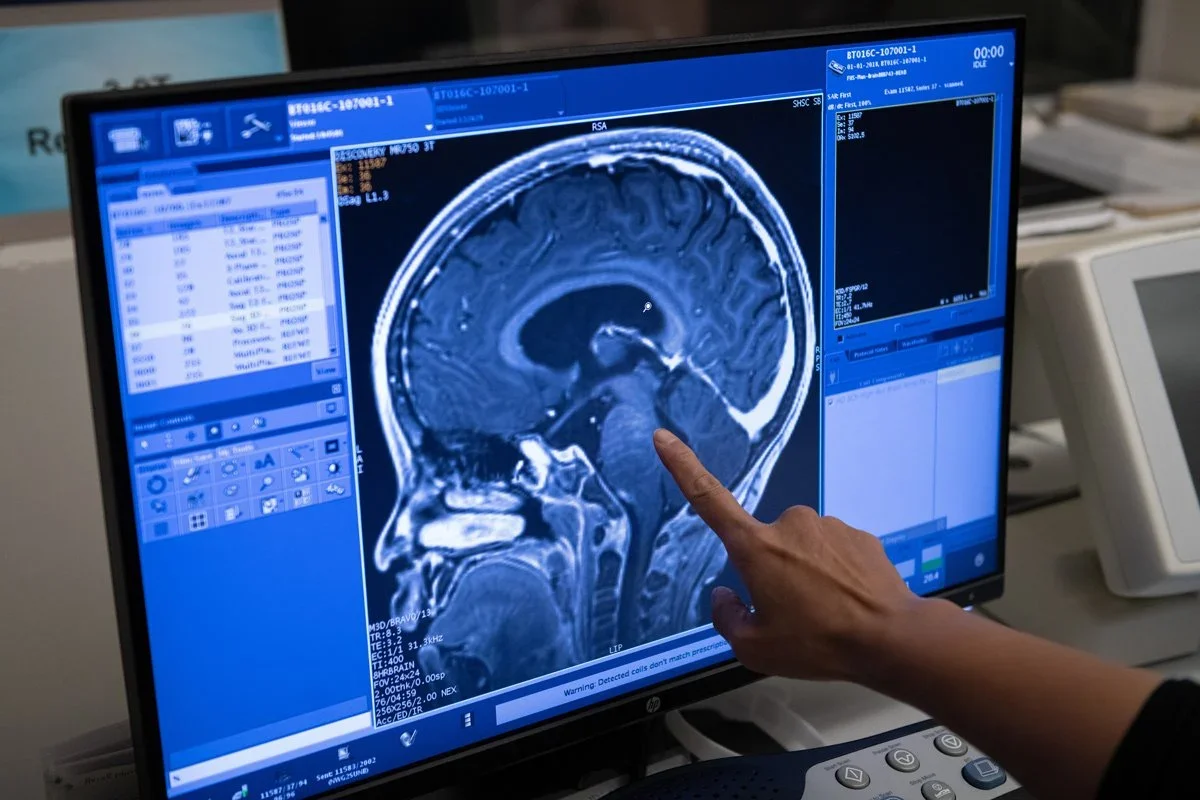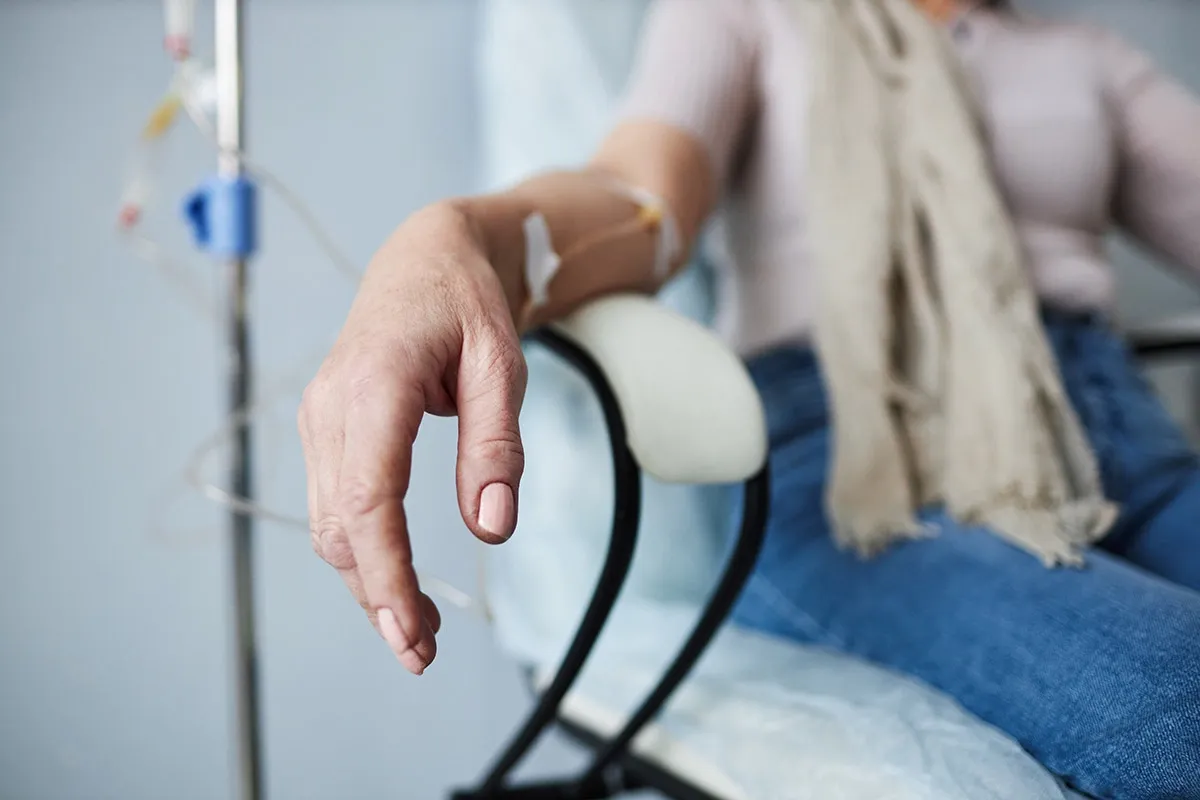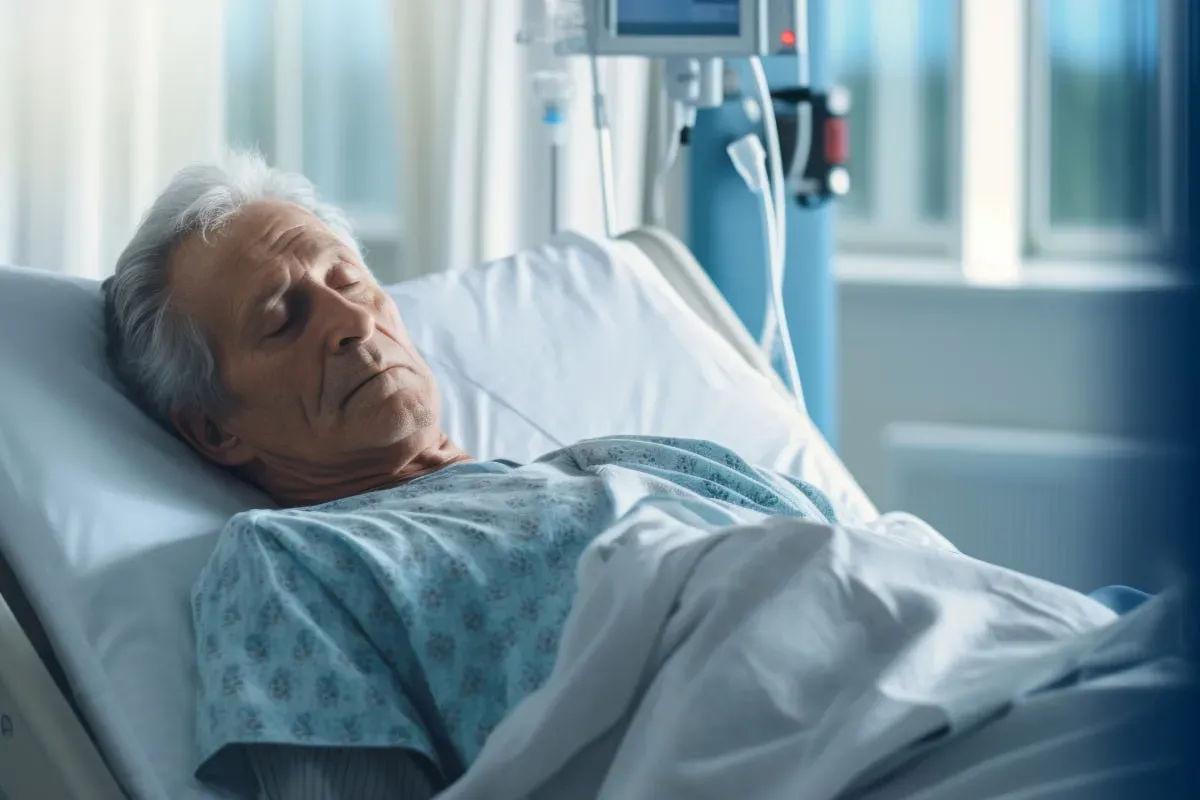Many people with early-stage kidney damage don’t know they have it because they don’t show symptoms. At Liv Hospital, we stress the need for regular tests to catch it early. This can greatly help keep your kidneys working well.
Stage 1 chronic kidney disease (CKD) means your kidneys are working fine, with a normal eGFR of 90 or more. But, there’s mild damage, and you might not feel anything wrong. Finding protein in your urine is a big clue that something’s off.
Acting fast, based on the best global practices and focusing on you, can change things for the better. We know how critical it is to offer top-notch care and support to patients from around the world.
Key Takeaways
- Early detection of kidney damage is key to keeping your kidneys healthy.
- Stage 1 CKD often doesn’t show symptoms, so regular tests are essential.
- Finding protein in your urine is a big sign of kidney trouble.
- Acting quickly can make a big difference in managing kidney disease.
- Liv Hospital gives full support and advanced medical care to patients from abroad.
What Is Stage 1 Kidney Disease?
Understanding Stage 1 kidney disease is key to catching it early. At this stage, people often don’t know they have it because they don’t have symptoms. But, doctors can find early signs through tests.
Definition and Diagnostic Criteria
Stage 1 kidney disease means your kidneys are damaged but work normally. Doctors look for protein in urine (albumin) and a GFR of 90 mL/min/1.73m² or higher. This stage is often found when checking for other health issues.
eGFR Levels and Kidney Function
The estimated glomerular filtration rate (eGFR) shows how well your kidneys work. At Stage 1, the eGFR is normal or high, meaning your kidneys are okay despite damage. Watching eGFR levels helps doctors keep an eye on your kidney health.
Prevalence and Statistics
Stage 1 CKD is more common than people think, often missed because there are no symptoms. Studies show many people have early CKD without knowing it. Catching it early through screenings is vital for managing it well.
Recognizing the Early Signs of Kidney Disease
Spotting kidney disease early can greatly improve treatment results. Kidney disease often starts quietly, making it key for both patients and doctors to know the early signs.
Why Stage 1 CKD Often Goes Undetected
Stage 1 Chronic Kidney Disease (CKD) is often missed because it doesn’t show clear symptoms. At this point, kidneys work normally, but there might be hidden damage. This can lead to ignoring the need for regular check-ups.
Risk factors like diabetes, high blood pressure, family history, and certain ethnic groups raise CKD risk. Knowing these can encourage people to talk about screenings with their doctors.
One of the First Detectable Signs: Protein in Urine
Protein in the urine, or proteinuria, is an early sign of kidney trouble. Normally, kidneys keep proteins in and waste out. But damage can cause them to leak proteins, like albumin, into the urine.
“The presence of albumin in urine serves as one of the first detectable signs of renal disease, indicating early kidney damage even when kidney function appears normal.”
Checking for proteinuria is simple, done through a urine test. Finding it early can help stop kidney disease from getting worse.
Test | Purpose | Indications |
Urine Albumin-to-Creatinine Ratio (uACR) | Measures the level of albumin in urine relative to creatinine | Early detection of kidney damage |
Urinalysis | General test to analyze urine composition | Detects abnormalities, including proteinuria |
Other Possible Warning Signs
Other signs of kidney disease include changes in how often you pee, swelling, feeling very tired, and in serious cases, nausea, vomiting, and trouble breathing. These symptoms can be vague, but if they keep happening, see a doctor.
Knowing about these early signs and risk factors helps people take care of their kidneys. Regular check-ups and quick action can stop kidney disease from getting worse.
Diagnostic Tests for Early Kidney Disease
To find out if you have chronic kidney disease (CKD), doctors run several tests. These tests are key to checking how well your kidneys work and spotting problems early.
Urine Albumin-to-Creatinine Ratio (uACR)
The urine albumin-to-creatinine ratio (uACR) is a major test for kidney disease. It looks at the albumin (a protein) in your urine compared to creatinine, a waste product. A higher ratio means possible kidney damage. This test is important because it finds kidney problems before you start to feel symptoms.
- Measures albumin leakage into the urine
- Compares albumin levels to creatinine levels
- Helps in early detection of kidney damage
Blood Tests and Kidney Function Markers
Blood tests are essential for checking your kidney function. They look at waste products like creatinine and urea in your blood. The estimated Glomerular Filtration Rate (eGFR) is calculated from creatinine levels, age, and other factors. It shows how well your kidneys are working.
- Serum creatinine test to measure creatinine levels
- Blood urea nitrogen (BUN) test to assess urea levels
- eGFR calculation to evaluate kidney function
Imaging and Additional Diagnostic Tools
Along with uACR and blood tests, imaging and other tools are used. These include ultrasound, CT scans, or kidney biopsies. They help check your kidney health and find any issues.
These tests give a full picture of your kidney health. They help doctors accurately diagnose CKD stage 1. Then, they can create a treatment plan for you.
Common Causes and Risk Factors of Stage 1 Kidney Disease
Knowing what causes Stage 1 kidney disease is key to managing it. By tackling these causes, people can lower their risk of the disease getting worse.
Diabetes and Hypertension
Diabetes and high blood pressure are top causes of Stage 1 kidney disease. Diabetes harms the kidneys’ filters, making it hard to remove waste. Hypertension strains the blood vessels, slowly damaging the kidneys.
Keeping diabetes and blood pressure under control is vital. This means managing blood sugar and blood pressure through diet, exercise, and sometimes medicine.
Genetic and Hereditary Factors
Genetics can also play a big role in Stage 1 kidney disease. Conditions like polycystic kidney disease (PKD) and Alport syndrome can harm kidney function.
If you have a family history of kidney disease, talk to your doctor. They can help with screenings and ways to prevent it.
Medications and Environmental Influences
Some medicines and environmental factors can harm the kidneys. Long-term use of NSAIDs can be harmful. Exposure to heavy metals and chemicals can also cause damage.
It’s important to be mindful of these risks. Talk to your doctor about any concerns with your medications or environment.
Risk Factor | Description | Management Strategy |
Diabetes | Damages kidney filters | Blood sugar control, lifestyle modifications |
Hypertension | Strains kidney blood vessels | Blood pressure management, lifestyle changes |
Genetic Factors | Inherited conditions affecting kidney function | Genetic counseling, regular kidney function monitoring |
Medications | Certain drugs can harm kidneys | Medication review, alternative treatments when possible |
Is Stage 1 Kidney Disease Truly Reversible?
To understand if stage 1 kidney disease can be reversed, we need to look at the latest research. The idea of reversing kidney disease is complex. It involves many factors.
Understanding “Reversal” vs. Halting Progression
The terms “reversal” and “halting progression” are often mixed up. But they mean different things in kidney disease. Reversal means getting back to normal kidney function. Halting progression means stopping further damage.
Recent studies show that while CKD can’t be reversed, its progress can be slowed or stopped. A leading nephrologist says,
“Early intervention is key to managing kidney disease effectively.”
Scientific Evidence on Kidney Recovery
Research on kidney recovery is promising. Early treatment can greatly improve kidney function.
Treatment Approach | Impact on Kidney Function | Clinical Outcomes |
Lifestyle Changes | Improved eGFR levels | Reduced risk of progression |
Medications | Slowed disease progression | Better management of symptoms |
Dietary Modifications | Reduced proteinuria | Enhanced overall health |
Success Stories and Clinical Outcomes
Many patients with stage 1 kidney disease have seen big improvements. They made lifestyle changes, took medication, and changed their diet.
These stories show how important early detection and treatment are. By knowing about reversal and how to achieve it, patients can work towards better kidney health.
Dietary Approaches to Reverse Stage 1 Kidney Disease
Changing your diet is key to managing Stage 1 kidney disease. Eating right can slow down kidney damage and make you feel better.
The Renal-Friendly Diet Explained
A renal-friendly diet helps your kidneys less. It limits nutrients that can harm your kidneys if eaten too much. The main points are:
- Limiting sodium intake: Too much sodium can raise blood pressure, which is bad for your kidneys.
- Managing protein consumption: While protein is good, too much can stress your kidneys.
- Monitoring potassium levels: Some people with kidney disease need to eat less potassium-rich foods to stay safe.
Managing Sodium, Protein, and Potassium Intake
It’s important to balance these nutrients. For sodium, use herbs and spices instead of salt. For protein, pick lean meats, fish, and plants. For potassium, talk to your doctor about what’s right for you.
- Look for low-sodium foods when you can.
- Watch how much protein you eat.
- Check your potassium levels with blood tests.
Hydration Guidelines for Kidney Health
Drinking enough water is vital for your kidneys. But, how much you need depends on your health. Just drink enough to stay hydrated.
Tips for staying hydrated:
- Drink water all day.
- Make sure your urine is pale yellow.
- Don’t drink too much caffeine or alcohol, as they can dry you out.
By following these dietary tips, people with Stage 1 kidney disease can manage their condition better. They might even reverse it.
Lifestyle Modifications That Support Kidney Function
Healthy habits are key for kidney health, even with stage 1 renal failure. Making smart choices can greatly improve kidney function. It might even slow or reverse the disease.
Exercise Recommendations for CKD Patients
Exercise is vital for managing chronic kidney disease (CKD). It helps control blood pressure and improves heart health. For stage 1 renal failure, a good routine includes aerobic activities like walking or swimming. Also, resistance training keeps muscles strong.
Always talk to a doctor before starting any new workout. They can make sure it’s right for you.
Stress Management and Sleep Quality
Stress and sleep are critical for kidney health. Chronic stress can worsen hypertension, a big risk for CKD. Try meditation, yoga, or deep breathing to reduce stress.
Getting 7-8 hours of sleep each night is also key. A regular sleep schedule and a quiet sleep area can help.
Avoiding Nephrotoxic Substances
Some substances can harm kidneys, more so for those with kidney problems. Avoiding nephrotoxic substances is important. Be careful with certain medicines and limit exposure to toxins.
Watch what you eat too. Avoid foods that can strain your kidneys. A doctor or dietitian can give you specific advice on diet.
By making these lifestyle changes, people with stage 1 renal failure can support their kidney health. They might even reverse the condition.
Medical Treatments and Interventions
Managing Stage 1 kidney disease needs a detailed plan. Working with healthcare providers helps create a treatment plan that fits your needs. This plan focuses on your health status.
Blood Pressure Management Strategies
Keeping blood pressure in check is key for Stage 1 kidney disease. High blood pressure can harm your kidneys more. So, it’s important to keep it at a safe level.
Medications like ACE inhibitors and ARBs are often used. They help control blood pressure and protect your kidneys.
Glucose Control for Diabetic Patients
For people with diabetes, controlling blood sugar is very important. Regular blood sugar checks and adjusting medications are necessary. This helps stop kidney damage from getting worse.
A healthcare provider can guide you on the best way to manage your blood sugar.
Medications That Protect Kidney Function
Some medications also protect your kidneys. SGLT2 inhibitors, for example, help keep kidneys healthy in people with chronic kidney disease.
Medication Class | Examples | Purpose |
ACE Inhibitors | Lisinopril, Enalapril | Blood pressure control, kidney protection |
ARBs | Losartan, Valsartan | Blood pressure control, kidney protection |
SGLT2 Inhibitors | Canagliflozin, Empagliflozin | Glucose control, renoprotective effects |
Creating Your Kidney Health Action Plan
Creating a detailed kidney health action plan is key to managing stage 1 kidney disease. This plan acts as a guide, showing you how to keep your kidneys healthy and stop the disease from getting worse.
Working With Your Healthcare Team
Working with your healthcare team is vital for your kidney health plan. They will explain your condition, suggest treatments, and watch your health over time.
To get the most from your healthcare team:
- Share your medical history, including any kidney or related health issues.
- Ask about your diagnosis, treatment choices, and any worries you have.
- Talk about your lifestyle, including diet, exercise, and habits that might affect your kidneys.
Monitoring Progress and Follow-up Care
Regular checks are key to managing stage 1 kidney disease well. Your healthcare team will suggest a schedule for follow-ups and tests to track your kidney and overall health.
Important things to watch include:
- Blood pressure levels
- Blood glucose levels (if you have diabetes)
- Kidney function tests (eGFR and urine albumin-to-creatinine ratio)
- Lipid profiles
Monitoring Parameter | Frequency | Purpose |
Blood Pressure | At every visit | To manage hypertension, a key risk factor for kidney disease progression |
Blood Glucose | As recommended by your healthcare provider | To control diabetes, a major cause of kidney disease |
eGFR | At least annually | To assess kidney function and detect any changes |
When to Consider Specialist Referral
While your primary care doctor is important, you might need a specialist for more focused care. See a nephrologist if you notice:
- Big changes in kidney function
- Hard time managing blood pressure or blood glucose
- Unclear diagnosis or complex kidney issues
By working with your healthcare team, keeping an eye on your progress, and knowing when to see a specialist, you can make a strong kidney health plan. This proactive approach will help you manage stage 1 kidney disease and keep you healthy.
Conclusion: Taking Control of Your Kidney Health Journey
Managing your kidney health is a big step towards feeling better overall. By choosing healthy habits and working with doctors, you can handle stage 1 kidney disease. This can make your life much better.
Finding and treating kidney disease early is very important. Knowing what causes it, who’s at risk, and how to get tested is the first step. This helps you start managing your condition.
We suggest you team up with your healthcare team to make a plan for your kidney health. This way, you can lower the chance of serious problems. And you’ll likely see your health get better.
Knowing a lot and having support is essential for dealing with kidney disease. We’re here to give you all the help and advice you need. We want to help you manage stage 1 kidney disease and reach your health goals.
FAQ
What is Stage 1 kidney disease?
Stage 1 kidney disease is the first stage of chronic kidney disease (CKD). It shows a slight drop in kidney function or damage. The estimated glomerular filtration rate (eGFR) is 90 or above.
What are the symptoms of Stage 1 kidney disease?
In Stage 1 kidney disease, you might not feel any symptoms. But, one early sign is finding protein in your urine.
Is Stage 1 kidney disease reversible?
The term “reversible” is complex. But, early action and care can stop or slow kidney disease. Making lifestyle changes and using medical treatments can help keep your kidneys healthy.
What are the diagnostic tests for Stage 1 kidney disease?
Tests include the urine albumin-to-creatinine ratio (uACR) to find proteinuria. Blood tests check kidney function. Imaging tests look at the kidney’s structure.
How can I manage Stage 1 kidney disease through diet?
Eating a renal-friendly diet is key. It means controlling sodium, protein, and potassium. Drinking enough water is also important. A healthcare provider or dietitian can help create a diet plan for you.
What lifestyle modifications support kidney health?
Regular exercise and managing stress are good for your kidneys. Getting enough sleep and avoiding harmful substances also helps. A healthcare team can help make a plan just for you.
What medical treatments are available for Stage 1 kidney disease?
Treatments include managing blood pressure and controlling sugar levels for diabetics. Medications that protect the kidneys are also used. A healthcare provider will create a treatment plan for you.
How often should I monitor my kidney health?
It’s important to see your healthcare provider regularly. This helps track your kidney function and adjust your treatment plan if needed.
When should I consider a specialist referral?
If your kidney function changes a lot or your healthcare provider suggests it, seeing a specialist is a good idea. They can provide further evaluation and management.
Can Stage 1 kidney disease progress to more severe stages?
Yes, without proper care, Stage 1 kidney disease can get worse. Early action and ongoing care can help prevent or delay this.
How can I create a kidney health action plan?
Working with a healthcare team is key. Keep track of your progress and make any needed changes to your lifestyle and diet. This helps create a kidney health action plan.
References
Preventing Chronic Kidney Disease – https://www.niddk.nih.gov/health-information/kidney-disease/chronic-kidney-disease-ckd/prevention











